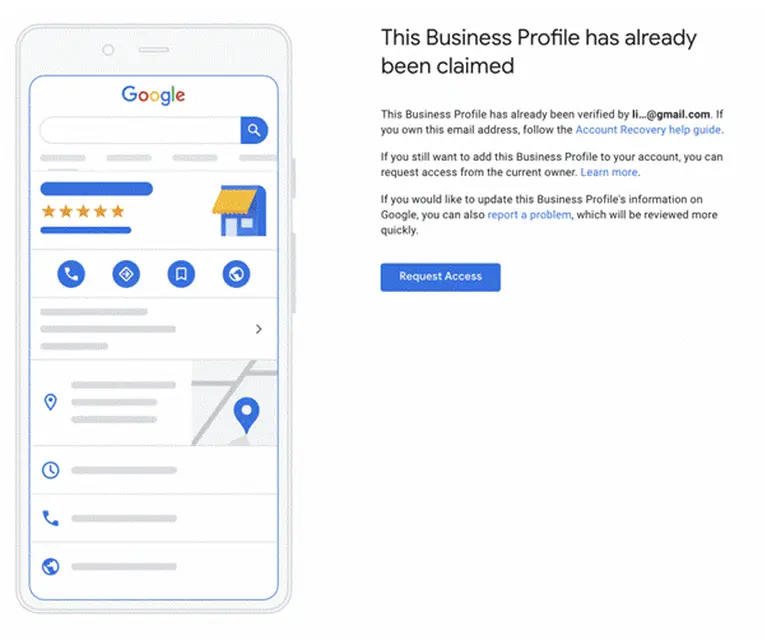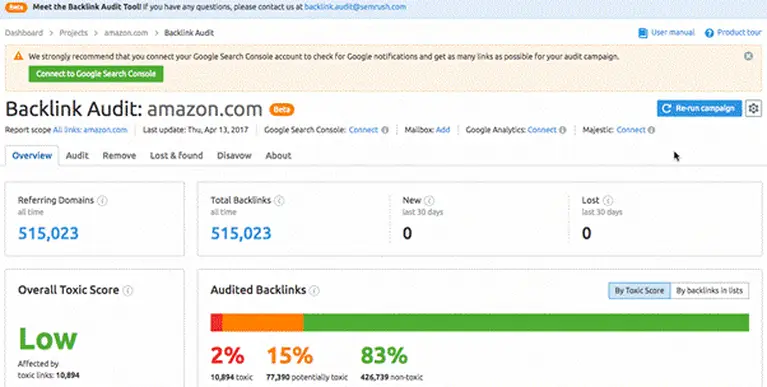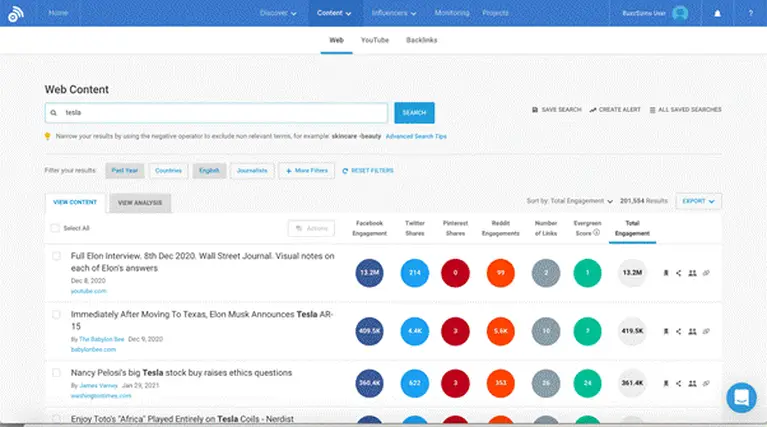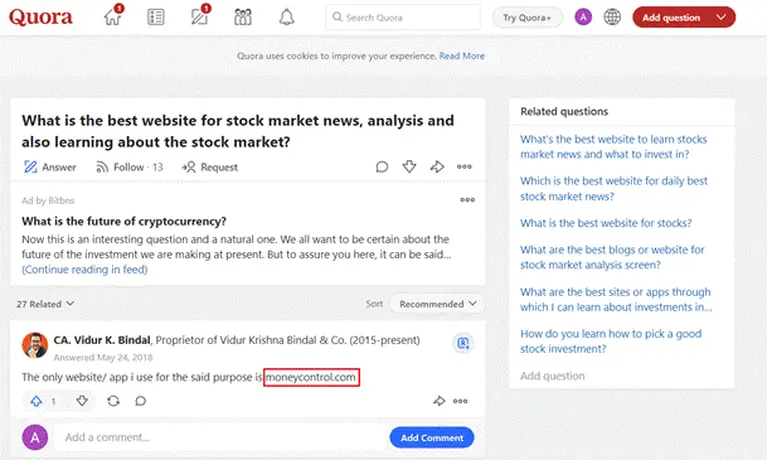
Get More Leads with These Simple Local SEO Fixes
Local SEO has been one of the most rewarding marketing strategies for local businesses.
In 2020, 90% of consumers will use the internet for local business searches. And the frequency of local business searches is regularly increasing in 2022.
That said, local businesses have most of their ideal audience searching online.
Local SEO earns higher traffic, inquiries, store traffic, and conversions.
But, if you are struggling to leverage these perks despite your local SEO efforts, here are some immediate local SEO fixes for you:
15 Local SEO Fixes You Can Do to Boost Your Rankings
1. Leading Without a Google My Business Listing
One of the most basic fixes with your local SEO strategy is listing your business on GMB.
Many local businesses are reluctant to create a Google My Business and rely on their website presence.
However, without a GMB listing, you are least likely to rank in the local 3-pack results.
How to Fix?
Here is a simple step-by-step process to list your local business on GMB:
- Click on Google My Business gateway and select "Manage Now."
- Use your professional Google Account for your GMB listing. You can create your official Google Account from here.

- Next, you need to check if your business listing already exists. If you find a listing for your business, you can claim it (click "Request Access").
- If you don't find an existing listing, create a new profile.

- Add your genuine business name and the main business category for the new profile.

- Next, you need to enter your registered business location. But, if you are a service-based business and offer services across a specific area, you must add your service locations. To do this, checkmark the "No" column for this question:

- You now have to roll across slides by filling in your genuine business information. These include a contact number, products/services, business hours, photos, etc.
- Finally, you need to request verification for your profile. You are most likely to see the Postcard Verification process.
2. Failing to Optimize Your Existing Google My Business Profile
Moz states that your GMB signals constitute a 25.4% share in your local 3-pack rankings.
However, many local businesses fail to define the right quality of their GMB listing. This has a significant impact on their search rankings.
How to Fix?
Here is how to optimize the several GMB elements for your business:
- NAP Consistency: You must add your registered business name, contact number, and location to GMB.
- Category: Enter your main business category and select the relevant sub-categories. You can also check the competitor's listing for the sub-categories.
- Products/Services: Add your business offering details (products/services).
- Description: Create a 150-200 words description by mentioning your business USPs. Further, gain SEO value by adding relevant product-specific and localized keywords.
- Service Area Business: If you are a service-based business, you must mention your main service locations on Google.
- Hours: Allow users to check your business hours by updating them regularly.
- GMB Reviews: Keep your GMB profile at the center of your feedback generation process for gaining more GMB reviews.
- Images: Gain engagement by adding a venue, staff, products, ambiance, menu, or food images.
- Posts: You can display offers, CTAs, or events using the Posts feature on your GMB listing.
- FAQs: Appear for relevant long-tail queries by adding business-specific FAQs to your GMB profile.
Here’s a screenshot of a business with complete NAP details:

3. Inadequate Business Listings and Local Citations
Due to reluctant business listing efforts, many local businesses fail to create a distinguished online presence.
Moreover, fewer local citations fade your presence among your online competitors.
How to Fix?
You must understand that GMB listing is a part of your business listing exercise. And you must continuously update your business presence across your niche-specific and local business directories.
Some popular local business listing sites are:
Also, use this list to find and list some important local business directories in the US.
Data aggregators like Express Update and Neustar Localeze also assist you in attracting local citations in the US.
Use Yext's Business Scan tool to find hidden listing opportunities in your niche.
Here’s an example of a listing on Yelp:

Read: How Local Citations Can Help You with Local SEO
4. Lacking Enough Positive Reviews On Your GMB Profile
Many local businesses have an inadequate feedback generation strategy. Moreover, some businesses completely lack a feedback generation strategy.
These inadequacies lead to a lower number of reviews on the GMB profile. And it fades the location authority of your business. Thus, translating into lower rankings in the SERPs.
How to Fix?
- Ensure to win reviews from in-store customers while they are in the store. A good way is to create a barcode for your GMB profile. And then, you can place it on your feedback form for customers to scan and post a GMB review.
- GetFeedback and SurveyMonkey are reliable tools to catalyze your review generation process.
- Schedule review request emails and integrate GMB profile links to these emails.
- Add review request reminders on your site and incentivize the process. (Eg. "Write a review about your experience at our salon and get a 10% discount on your next visit.”)
- Manage negative reviews within time by showing concern. And show appreciation for each positive review. Thus, encouraging more users to share their feedback.
- Request the niche bloggers and influencers to try your services/products and review them.
Here’s an example of a business owner showing appreciation for a positive review:

5. Your Content Isn't Optimized for Localized Keywords.
Google considers location relevancy as a crucial parameter for ranking local search results.
However, businesses invest most of their SEO efforts in generic keywords as a general practice. And this reduces the location authority of these businesses.
How to Fix?
a) The first tip is to create localized keyword combinations and specific keywords.
E.g., If you are a plumbing service provider in Houston, you can create localized keywords like:
- Houston plumbing services
- Drainage fixing services in Houston
- Hire plumbers in Houston
- Houston residential plumbing fixation services
Add these keyword combinations to your site content, blogs, and GMB description.
Google Keyword Planner and KeywordTool.io will sort long-tail keywords in your niche.
Moreover, Ahrefs or SEMrush offer you insights into the localized keywords used by your competitors.
b) Ensure to create content in localized language and cover common local search queries.
Here’s a screenshot of SEMrush showing keywords used by a competitor:

6. Poor Mobile Platform Compatibility
So, you have a good-looking website, and you are investing in your local SEO strategy. But, you cannot find your website rank for crucial local queries.
This is probably because your site is not optimized for mobile traffic.
The mobile platform powers over 50% of the local search queries on Google. And, for industries like plumbing, HVAC, home care, etc., over 60% of local searches are from mobile devices.
So, poor mobile compatibility will cost you a significant loss in traffic and SEO performance.
How to Fix?
- Check the mobile compatibility score of your site by using the Mobile-Friendly Test tool.
- This tool also displays the possible errors. And you can request your site developer to resolve the mobile compatibility errors.
- Also, make your site more impressive for mobile users. Structure the site elements and content for long scroll and easy mobile readability.
Here’s a screenshot of the Mobile-Friendly Test tool:

7. Business Site Isn't Optimized for Local SEO
Your on-page elements and site optimization have a crucial impact on your local search ranks.
Moreover, a business with an optimized site has a high competitive advantage in SERPs.
Meanwhile, if your site lacks proper optimization, you cannot expect top ranks.
How to Fix?
- Start with defining individual page categories for your several business offerings. Optimize the content on these pages and enrich it with proper keywords.
You must leverage Google Keyword Planner and SEMRush to research crucial keywords. And include both business-specific and location-specific keyword combinations.
- Ensure to set up and leverage your Google Search Console and Google Analytics accounts. You can track your SEO performance and Google penalties through these tools.
- Once your site structure is optimized, create a sitemap. Next, submit this sitemap to Google through Google Search Console.
- Create a catchy and informational Meta Title (maximum 55 characters). And ensure to optimize it with the page's focus keyword.
- Create insightful Meta Descriptions (maximum 155 characters) for all the indexed pages.
- Add the location schema along with other crucial schema markups.
- Reduce the site's loading time and increase its mobile compatibility.
Here’s a screenshot of Google Analytics:

8. Inadequate Content Marketing Efforts
Content marketing is one area that requires surplus time and effort. And many local businesses fail to deploy adequate efforts in producing quality content.
Meanwhile, the businesses that invest time in content marketing reap 6x more conversions.
So, if you are still reluctant to add the right content marketing strategy, your local competitors will take the lead.
How to Fix?
Local businesses can deploy several types of content marketing efforts:
a) You must grow your relevancy for crucial long-tail queries by creating valuable blogs.
E.g., If you own a Pest Control business in San Diego, a crucial blog topic can be:
"Top 10 Ways to Control the Growth of Pests in San Diego"
Ahrefs and SEMrush also help you scrutinize your competitors' topics.
b) Create FAQs for the popular user queries in your niche.
Use Google Keyword Planner, Quora, Reddit, and Tumblr to understand the most crucial FAQs.
Moreover, add these FAQs to your web pages and GMB listing.
c) Create several types of content aligned with your local SEO strategy.
Create video content, infographics, 'How To' guides, social media posts, case studies, etc.
d) Repurpose your content in different formats and share it across social platforms
Your content marketing efforts will grow your online brand's visibility and relevancy for crucial local queries. Thus, you can expect increased site traffic, more inquiries, valuable backlinks, and higher rankings.
Here’s an example of FAQs on a travel website:

9. GMB Profile Has Witnessed a Google Suspension
One crucial reason you fail to witness good rankings for your local business is GMB profile suspension.
If Google suspends your profile, it might appear unverified (soft suspension). Or, Google may completely pull down your profile in the case of hard suspension.
How to Fix?
One of the first steps is why Google has suspended your profile. Here are some most common reasons:
- You have made multiple GMB profiles for the same business
- You are using an inconsistent business address, name, or contact across different listings
- You have removed your physical address completely
- You have stuffed your GMB listing with unnatural keywords
- You might be using a forwarding website URL or phone number
- You might have relocated or changed your business name or contact without updating GMB.
- You are displaying your physical address instead of your service areas.
Check these possible reasons and fix the actual error. Next, you need to submit a reinstatement request to Google.
Google may also ask you for various documents, photos, and video proof.
You can use this tool to find duplicate GMB listings:

10. No Proper Link Building Strategy
Even after creating abundant listings and optimizing on-page elements, a business may fail to rank in SERPs. This can be due to the domain authority.
Your domain authority is a significant reflection of your link profile. So, if a local business is leading without a proper link-building strategy, it wouldn't earn top rankings.
How to Fix?
a) Create valuable content and promote it through social media to gain high reach. This exercise will also earn you natural backlinks.
Here, use Ahrefs or SEMrush to find which content pages earn natural backlinks for your competitors.
Moreover, also scrutinize your competitors' referring domains. These web admins might be interested in linking to your content as well.
b) Use the HARO platform to search for expert contributors with PR professionals actively.
You can pitch your contribution if you deem yourself a good contributor to their relevant PR story. Further, you can work out valuable PR mentions and backlinks with them.
You can analyze the quality of your backlinks using SEMrush:

11. Lower Number of Unstructured Citations
While structured citations are easier to earn, some local businesses ignore unstructured citations. However, Google considers naturally earned unstructured citations superior to structured ones.
So, fewer unstructured citations can cost you faded SEO performance.
How to Fix?
- Use HARO to contribute to relevant PR stories and earn brand mentions.
- Google Alerts or Mention can check the sites that mention your competitors' business. You can pitch the same sites to gain valuable brand mentions.
- You must also set alerts for the new mentions you earn online. You can also request web admins to attach backlinks with your brand mentions.
- Connect with several local influencers and bloggers and request links and brand mentions.
Here’s a screenshot of Google Alerts:

12. Not Leveraging Social Media for SEO Growth
Today, social media platforms entertain over 4.62 billion internet users. This forms approximately 85% of the total number of internet users.
A significant part of your ideal target audience is already on one social media platform.
Moreover, marketers who regularly leverage social media claim an 80% increase in site traffic.
Still, some businesses lead with an incompetent social media strategy. And it translates into lower site rankings.
How to Fix?
a) Share your content for enhanced reach on Facebook, Instagram, LinkedIn, Pinterest, etc.
Also, repurpose your content for posts, Stories, video feeds, and sharing on social platforms.
This practice adds good referral traffic and regular backlinks to your content.
b) Produce original content for your social media profiles.
You must use several features like Rich Pins, Stories, Video & Feed Posts, etc.
Moreover, use the popular short-form video format on Instagram Reels, TikTok, and YouTube Shots.
Make this content more searchable by using keywords and hashtags.
On Facebook, choose 'Yes' for "Do You Want Other Search Engines to Link to Your Timeline?"
This makes your Facebook posts eligible to rank for relevant searches on Google.
Tip: BuzzSumo, Sprout Social, and SEMRush are valuable tools for scrutinizing your competitors' social media strategies.
Here’s a screenshot of BuzzSumo showing a competitor’s social media analytics:

13. Business Site is Slower than Most Competitors
Google has already stated the importance of site speed in SEO rankings. Moreover, Google's Page Experience Update also highlighted page speed as a crucial ranking signal.
So, if your competitors' site is faster than you, they are likely to rank higher.
How to Fix?
Google's PageSpeed Insights tool measures your site's loading time. Further, it shares a list of site performance errors that increase loading time.
You can request your developer to make the right edits and fix these errors.
Additionally, some important fixes are:
- Compress the image & video files on your site without fading their quality
- Enable the Gzip compression for the site to load faster
- Employ asynchronous loading for the JS elements to reduce page response time
- Minify and combine all the elements (HTML, CSS, and JS files)
Here’s a screenshot of PageSpeed Insights:

Read: Tips to Increase Page Loading Speed
14. A Directionless Local SEO Strategy
One reason why businesses fail to earn top rankings is due to their directionless local SEO strategy. They lead with a random set of SEO efforts and fail to gauge their SEO performance.
How to Fix?
Gauge your local SEO performance and optimize your SEO strategy accordingly. Here are some important SEO parameters that you must track:
- Check the growth in reviews on your GMB page, website, and other listings.
- Use Google Analytics and Google Search Console to check the results of your SEO efforts. Check your organic traffic, keyword rankings, link profile, conversions, etc.
- Tools like Google Alerts and Mention allow you to set alerts for new brand mentions. You can check if your local SEO efforts are helping you receive mentions, links, and reviews.
- Also, track call inquiries and direct conversions through the site.
Here’s a screenshot of Mention:

15. Not Optimizing for the Crucial Long-tail Queries
With the launch of Google's BERT algorithm, Google powers long-tail queries more accurately.
Moreover, businesses that use natural long-tail keywords witness growth in traffic and ranks.
Meanwhile, businesses that rely on specific keywords fail to build strong relevancy for natural queries. And this hurts their site traffic and ranks.
How to Fix?
- Use Google Keyword Planner and KeywordTool.io to sort the most relevant keywords for your business.
Also, draw competitors' keyword insights from SEMRush and Ahrefs. This will help you locate crucial long-tail keywords for your local business.
- Next, optimize your site content and blogs to place your focus keywords.
Moreover, build question-answer-type content around these natural keywords. This content is highly likely to rank as the featured snippet for relevant local queries.
- Tumblr is another valuable platform to earn backlinks and traffic from relevant micro-blogs.
Here’s a screenshot of a Quora answer linking to a website:

Key Takeaways
Here are some of the key fixes for local SEO:
- Create a well-optimized and detailed Google My Business listing.
- Add business listings on TripAdvisor, Yelp, Apple Maps, Foursquare, etc.
- Set review request reminders, schedule emails, and win abounding GMB reviews.
- Optimize your content (blogs & FAQs) for localized keywords, language, currency, etc.
- Offer unfading mobile-friendly site experience with high readability.
- Optimize your metadata, add location schema, optimize site structure, and submit a sitemap.
- Produce valuable FAQs to list on your site and GMB
- Create 'How To' guides and use Ahrefs for finding the best content topics for your local business.
- Check for any Google suspensions, fix them, and submit reinstatement.
- Gain backlinks by promoting valuable content on social media. And find easy link-building opportunities through competitors' SEO analysis.
- Use HARO to contribute to PR stories and win PR mentions with backlinks.
- Minify JS, compress images and fix site errors to accelerate the site's loading speed.
- Check growth in reviews, mentions, traffic, conversions, etc. And optimize your local SEO efforts accordingly.
ABOUT THE AUTHOR:
Brice Decker

Brice has been handling marketing projects for more than 12 years and he is providing consulting services on SEO, Social Media and PPC. He has a huge expertise in working at large corporations including Accenture Interactive & PwC Digital Services.
ABOUT THE AUTHOR:
Brice Decker

Brice has been handling marketing projects for more than 12 years and he is providing consulting services on SEO, Social Media and PPC. He has a huge expertise in working at large corporations including Accenture Interactive & PwC Digital Services.
Related Post
How to Rebrand Your Business Without Losing SEO?